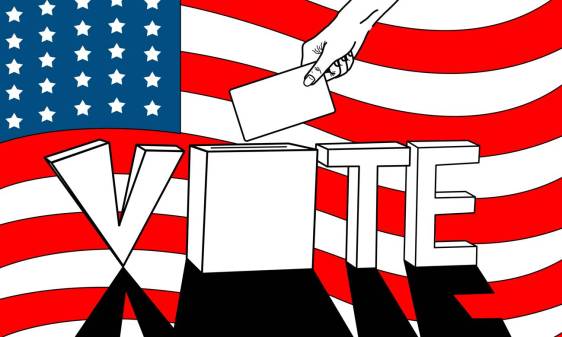Orange is the new black (of voting databases)

With 42 million Americans moving each year, localities are struggling to maintain updated voter registration administration. A global information group thinks that it has found a solution to that – and it is implementing that solution in the sixth most populous county in the country.
Experian, a leading company in the data services and analysis realm, has conducted several small-scale tests in Orange County, Calif., to see if the company could clean up some of its voter registration databases.
“Orange County came to us because they had gone through a number of iterations trying to meet the challenges that they were having – they could not keep their voter registration lists current,” Jill Canetta, Experian’s vice president of marketing said in a phone interview.
The results, Canetta said, were promising. In the first test, the county provided 1,000 names and addresses. After Experian ran the information through their system, which pulls from several different databases through skip tracing, they found nearly 500 names that needed to be updated.
Skip tracing is a process that collects as much information as possible about a subject in order to determine a subject’s most recent location. Through Experian’s work as a credit bureau, the company can use “above the line” data, which includes name, address and identification data, to add to the results of the skip trace.
By comparing this data to the voter registration data in Orange County, the voting registrar was able to compile a list of more recent addresses for citizens and reach out to them to update, or in some cases, remove their information from their voter registration database.
“We’ve been able to move quite a few individuals to the inactive file,” Neal Kelley, Orange County’s registrar of voters said in a phone interview. “We don’t cancel anybody unless they affirmatively send back a card saying yes, I am out of state or I am out of county. So it’s been very good, it’s been very positive.”
In a later test, Experian ran through its system a 250,000-person list of people who had not voted in Orange County for four years. The company found more than 120,000 updated addresses. After, the registrar sent postcards to the addresses that required a signed return verifying the updated information was accurate. More than 18,000 people responded confirming the updated information.
Yet the updating of data was not just for reorganization purposes; it could also save localities money, Canetta said.
“What they found, based on that one batch review, is that they would have mailed [regular voting information] out [at taxpayer expense],” Canetta said. “They calculated that the savings from one election would be $44,000. When they extrapolated that over the course of the year, it would be about $94,000.”
Kelley said with all voting-related mailings, the registrar’s office is spending three to four dollars per voter. By cleaning up the database, the office has been able to save big.
“So just taking out the voters that have moved or that are no longer participating, we’re saving hundreds of thousands of dollars. That’s huge,” Kelley said. “That’s raw tax dollars for us, on the election side, it comes directly out of property tax.”
Since then, Experian has conducted a few other tests for Orange County, and is still waiting on results, but the company is planning to take its model to other counties in California, and eventually to other areas in the country.
“We’re pretty excited about it. It’s always great as a vendor to have great stats to use and show the return on investment,” Canetta said. “We already have work we’re doing to extend the information to the state of California but beyond that as well.
“We see the trend happening, beyond what we’re doing, we see it in consortiums, certainly in places like the midwest, you see states there are starting to be more active in terms of trying to update their lists.”
Although the data service Experian offers is not free, Canetta said the county will save on postage and have better success contacting their voters.
“Although the data’s not free, its not very costly, and they see for a nominal amount they can really make a big impact to their registration polls,” Canetta said. “These are really simple things we’re doing here. It’s not like we’re doing anything that would’ve taken a lot of time. It’s very simple, secure and speedy.”
For Kelley, his office plans to expand the use of Experian’s services, and in fact, use it every few years. .
“Yes, I want to continue to expand it,” Kelley said. “We do this every two years so that we get that group that hasn’t voted in the last couple of years.”






